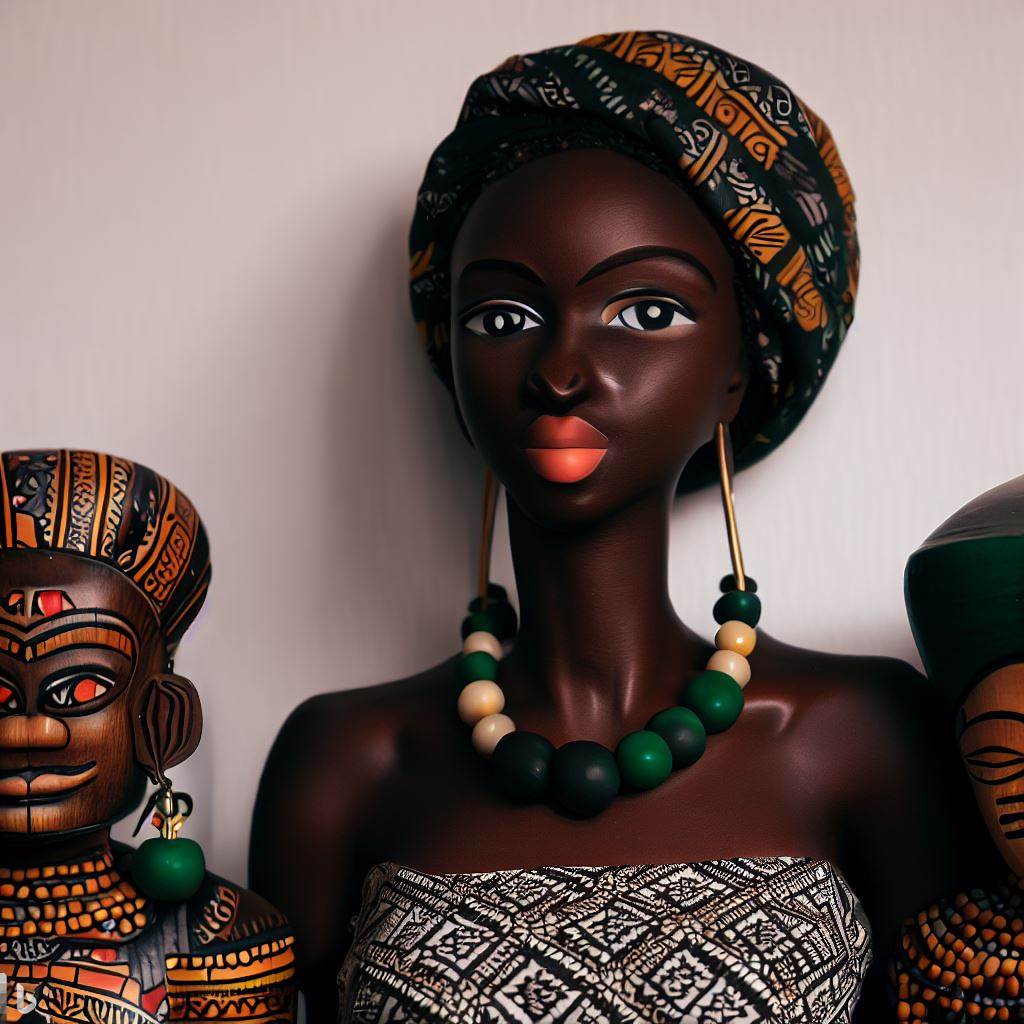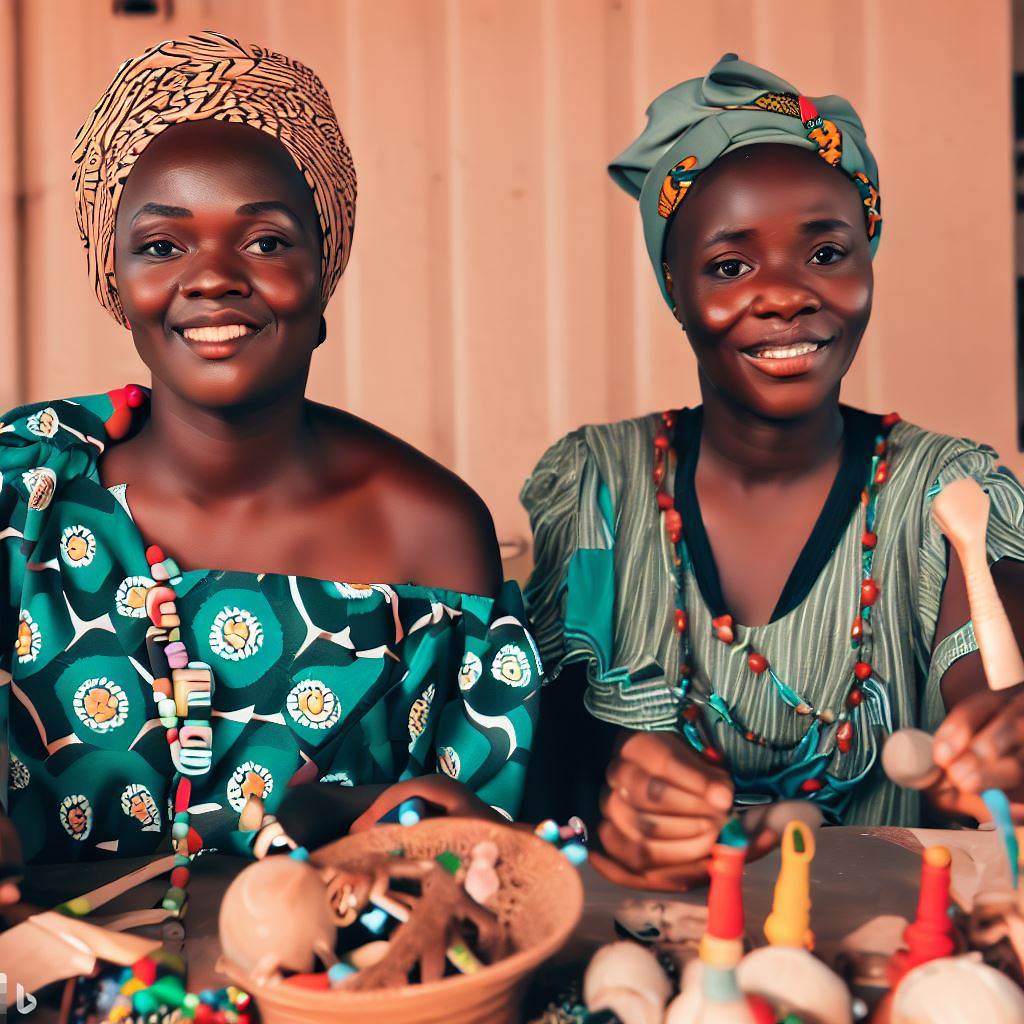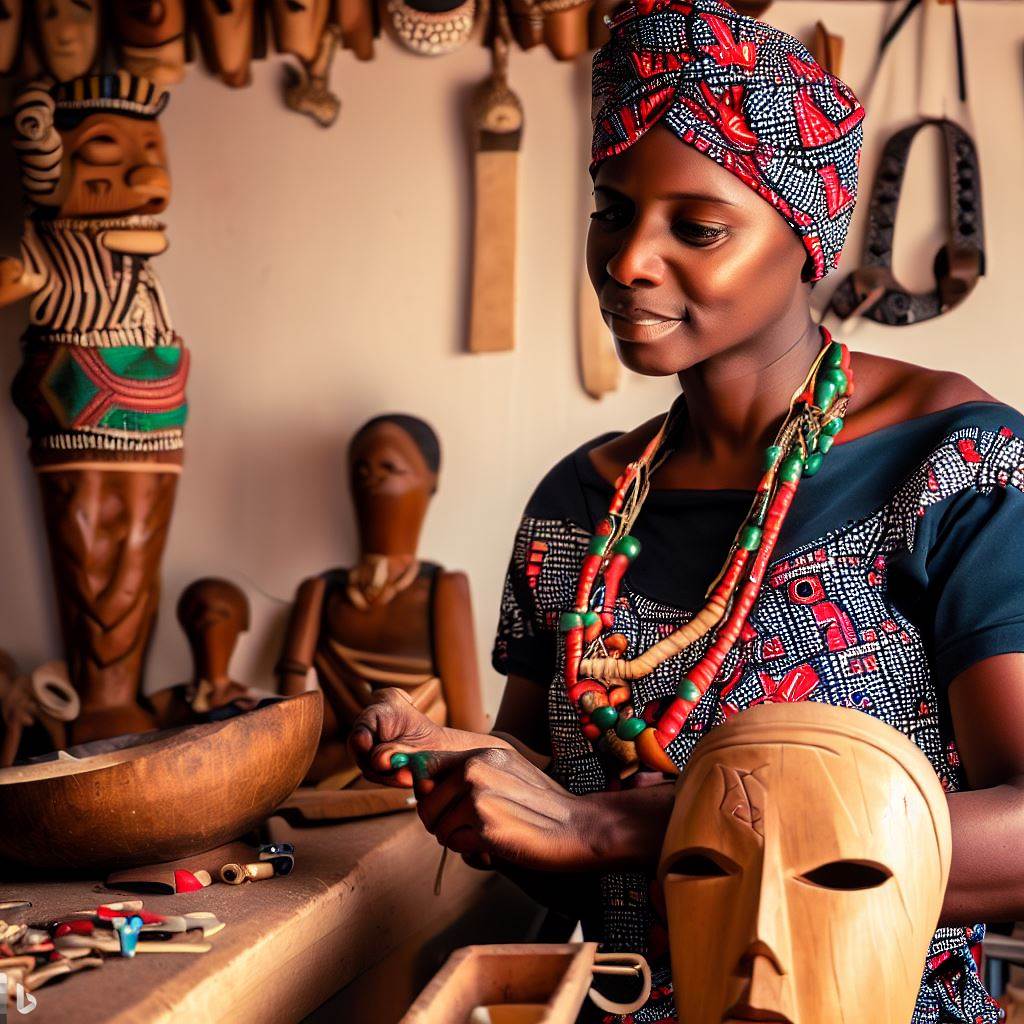Introduction
Craftsmanship is the art of creating something using skill and expertise. Nigerian craftsmanship has a rich history that stretches back centuries, with diverse cultures producing unique forms of art and craft.
These crafts include ceramics, metalwork, weaving, and woodcarving, to name a few. The techniques used in Nigerian craftsmanship are often passed down generationally, ensuring a continuation of tradition and quality.
Discussing the global influence of Nigerian craftsmanship is important as it highlights the intricate artistry and rich cultural heritage of Nigeria.
It also promotes and markets Nigerian crafts to a global audience, increasing their demand and value.
Nigerian craftsmanship has influenced global fashion trends, with Nigerian fashion designers showcasing fabrics and patterns in their collections.
Additionally, international artists have also incorporated Nigerian craft techniques into their works, including Yinka Shonibare, who combines traditional batik textiles with contemporary materials.
The impact of Nigerian craftsmanship on art, fashion, and design is widely recognized, making it a significant part of Nigeria’s cultural identity.
As such, celebrating and preserving Nigeria’s craftsmanship is vital in ensuring their continued relevance and impact on current and future generations globally.
Read: Prospects and Challenges: Craftsmanship in Nigeria
Nigerian Craftsmanship in the Fashion World
- Nigerian fabrics and textiles have had a significant influence on global fashion.
- The use of beautiful and vibrant prints in Nigerian fabrics has caught the attention of fashion designers worldwide, and they have found a way to incorporate them into their works.
- Top designers like Burberry, Louis Vuitton, and Stella McCartney incorporate African prints, including Nigerian fabrics, into their collections.
- However, some Nigerian designers are also making waves in the industry, such as Lisa Folawiyo, Maki Oh, and Deola Sagoe.
- They are renowned for infusing the African culture into their styles of creating designs, and they have gained recognition and a global audience.
- These designers are using traditional techniques such as embroidery, beading, and applique to create unique and exquisite pieces.
- Their designs showcase craftsmanship at its finest, and they represent Nigeria’s rich cultural heritage.
- The Nigerian fashion industry has also indirectly contributed to the Nigerian economy and job market.
- Several industries have benefited from the fashion industry’s success in Nigeria, such as tailors and textile mills, and there has been an increase in job opportunities in these areas.
- Moreover, the success of Nigerian designers in global markets has opened doors for potential investors and entrepreneurs to invest in the Nigerian fashion industry.
The influence of Nigerian craftsmanship is not limited to the fashion industry. It is also apparent in other areas, such as art, music, and film, to mention a few.
Read: The Crafts of Nigeria: Celebrating Diversity and Talent
Discover More: Future Forecast: The Craft and Trade Skills Sector in Nigeria
Nigerian Craftsmanship in Interior Design
Nigerian craftsmanship has made a remarkable impact on interior design globally. The use of Nigerian art and decor in international interior design has elevated the African design aesthetic to a new level.
Use of Nigerian Art and Decor in International Interior Design
For many years, Nigerian art and decor adorned interior design, but only recently captured the global market’s attention.
The unique and vibrant patterns and colors of Nigerian textiles attracted interior designers worldwide.
The use of Nigerian fabrics such as adire, aso-oke, and kente has become increasingly popular in international interior design.
These textiles are used to create stunning home decor items such as pillow covers, tablecloths, and curtains.
Additionally, Nigerian pottery, woodwork, and metalwork have become popular choices for home accessories such as vases, bowls, and sculptures.
Popular Nigerian Design Elements and Motifs
Nigerian design is often characterized by its use of bold colors and intricate patterns. One of the most popular design motifs in Nigerian art is the use of geometric shapes and symbols.
Art and decor enthusiasts use these masks to imbue spaces with cultural heritage and history.
Nigerian interior design commonly features traditional African wax prints, crafting striking statement pieces like curtains, cushions, and upholstery.
The Growing Demand for Nigerian-Made Interior Products
The growing demand for Nigerian-made interior products has led to an increase in the number of local craftsmen and businesses offering their services.
This has created more job opportunities and has helped to boost the Nigerian economy.
Those who desire an African cultural touch in their homes often seek Nigerian-made interior products.
Additionally, the uniqueness and quality of these products make them appealing to those who are looking for something different from the mass-produced items commonly found in stores.
The global interest in African design is rising, leading to an expected increase in demand for Nigerian-made interior products.
This presents a great opportunity for Nigerian craftsmen and businesses to showcase their skills and creativity to the world.
The global influence of Nigerian craftsmanship in interior design is undeniable. The use of Nigerian art and decor in international interior design has brought African design to the forefront of the design world.
The popularity of Nigerian textiles and motifs has led to an increased demand for Nigerian-made interior products, which has, in turn, helped to boost the Nigerian economy.
With the growing demand for African design, there has never been a better time for Nigerian craftsmen and businesses to showcase their talents to the world.
Read: A Closer Look at Trade Skill Education in Nigeria

Nigerian Craftsmanship in Music and Literature
- Nigerian music styles have influenced global music trends, with the rise of Afrobeats
- The fusion of Nigerian music with Western genres has created new sounds and sub-genres
- Artists like Wizkid, Davido, and Burna Boy have gained international fame
- Nigeria has a vibrant literary scene with many renowned authors, such as Chinua Achebe and Chimamanda Ngozi Adichie
- Nigerian literature often addresses issues of identity, political turmoil, and cultural values
- The promotion of Nigerian culture through music and literature has helped to showcase its richness and diversity
Nigerian music styles like highlife and juju evolved into the popular genre Afrobeats, captivating the world.
Afrobeats features catchy beats, vibrant melodies, and powerful lyrics, captivating global music lovers.
Nigerian rhythms fused with Western genres (hip-hop, R&B) create exciting new sounds.
Artists like Wizkid, Davido, Burna Boy gained fame, collaborating with Beyoncé, Drake, breaking cultural barriers.
Nigerian literature boasts renowned authors – Chinua Achebe, Wole Soyinka, Chimamanda Ngozi Adichie.
It addresses identity, political turmoil, cultural values, reflecting complex history, diverse ethnic groups.
Nigerian literature gained global recognition, translated into many languages, winning awards and accolades.
Authors used literature to tell stories, promote culture, challenge stereotypes, misconceptions about Nigeria.
Promotion of Nigerian culture through music and literature showcases richness, diversity to the world.
Nigerian artists, authors express unique perspectives, Nigeria’s creativity, diversity, and resilience to global audience.
Nigeria’s craftsmanship leaves a significant impact in music, literature on the global stage.
Nigerian music influences global scene, literature gains recognition, acclaim, challenging stereotypes, promoting diversity.
Nigerian culture’s promotion inspires future generations, influences global culture for years to come.
Read: How Nigerian Craftsmen Are Innovating Traditional Arts
Conclusion
Nigerian craftsmanship has undoubtedly made a lasting impact on the global stage. From fashion to home decor, Nigerian artisans continue to inspire and elevate their industries.
However, it is important to recognize and support these artisans and their industries to ensure that they continue to thrive.
By supporting Nigerian craftsmen, we not only preserve their unique and rich cultural heritage but also help to create more job opportunities and economic growth in Nigeria.
As the world becomes increasingly globalized, the demand for high-quality, handmade products is only increasing and Nigeria has a wealth of talented artisans.
Looking towards the future, there is boundless potential for Nigerian craftsmanship to continue to grow and influence the world stage.
Through partnerships and collaborations with international brands and designers, Nigerian artisans have the opportunity to showcase their skills and expand their reach.
By investing in skills training and education programs for young Nigerians, we can ensure that this legacy continues for generations to come.
Finally, Nigerian craftsmanship is a testament to the rich cultural heritage of Nigeria and its people. It has earned its place on the global stage through its unique and unparalleled quality.
It is our duty to recognize and support this invaluable cultural asset and help it to continue to thrive in the future.




